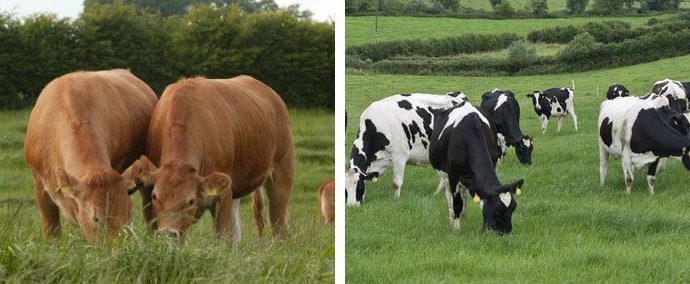Minister Must Publish TB Proposals and Their Rationale and Funding Plans

IFA Animal Health Chair TJ Maher said the proposals put to the TB Forum meeting this week by the Department of Agriculture and the manner in which they were presented was shambolic.
“The Department flashed up over 25 half-baked, poorly thought-out proposals with no details. This was in stark contrast to the detailed submission made by the IFA a month earlier,” he said.
“The Department didn’t circulate their ‘proposals’ to stakeholders on the day, instead choosing to flash them up on a screen halfway through the meeting and seemed unsure themselves as to what they actually were proposing. It was a shambolic approach to such a serious issue for farmers, our families and our livelihoods,” he said.
IFA entered this review process in good faith to address the scourge of TB on farms. Based on the offering from the Department, they do not seem to have the same objectives and don’t appear to appreciate the devastation this disease is causing on farms throughout the country. All of the work of the last nine months has been a complete waste of time.
“What the Dept has set out to resolve the TB issues consists primarily of passing the buck and effectively blaming farmers for the current TB situation. It was a cocktail of reduced compensation; more and prolonged restrictions on farmers; and blacklisting of farmers through compulsory herd categorisation,” he said.
TJ Maher said the current TB crisis is a direct result of flawed policy decisions in the past by the Department of Agriculture and their complete failure to adequately resource and consistently implement the programme.
IFA put forward a comprehensive set of proposals (see Note to Editor) to address all aspects of the disease control measures in the TB programme at the meeting, which included 13 key points and details of how these should be implemented at farm level.
TJ Maher said the time for hiding in the shadows is over for the Minister for Agriculture Martin Heydon and his officials. This disease is crippling farmers while the Minister stands over his officials throwing out half baked, poorly thought-out concepts that will only serve to increase the burden of the disease on farms.
“Minister Heydon needs to grab hold of this issue. He can start by publishing the proposals his officials put forward along with the rationale on how they will reduce the levels and spread of TB and outline the funding allocation he intends to make to support their impact on farms.”
“Unless we see a significant change in approach from the Department of Agriculture in this process we have to question both the purpose and effectiveness of the TB Forum,” he concluded.
Note to Editor:
IFA Proposed Enhanced TB Programme Measures
- Government must commit to providing the resources necessary to implement an effective and efficient TB programme consistently throughout the country, this includes financial, veterinary, technical and administrative supports.
- The Wildlife Control Programme must revert to density reduction to bring the badger population to the previously identified DAFM figure of a maximum of 0.5 badgers/sq km to reduce the potential of badger to cattle transmission.
- Deer Management Units (DMUs) as part of the National Deer Management Strategy to reduce deer numbers must be established in all high prevalence TB areas where deer are present.
- The DAFM must cease communications on Herd Categorisation and Risk Based Trading. This approach does not stop the movement of potentially TB infected animals, unfairly and unnecessarily devalues farmers livestock who through no fault of their own have recently exited a TB restriction. The recent figures of C10 herds who have TB breakdowns also further discredits this approach
- The DAFM must implement density reduction of all TB susceptible wildlife in advance of any major ground disturbance works and deforestation in recognition of the recent UCD study findings which were presented to the TB Forum if we are serious about trying to stop new TB breakdowns.
- The DAFM in consultation with farm organisations must finalise and implement contract rearing Risk Management Plans.
- The DAFM must develop, in consultation with farm organisations, practical Risk Management Plans for all farmers to be used through the farmers own Private Veterinary Practitioner (PVP) to help drive awareness of TB risk and provide advice on appropriate precautions.
- To address the concerns raised by the DAFM in relation to the lower sensitivity of the SCIT test and the potential for TB infected animals to remain within herds the more sensitive GIF test should be used in herds where within herd TB spread is confirmed.
- To complement the proposal at point 8 and further reduce the likelihood of Higher Risk TB animals leaving dairy herds, a compulsory pre movement test for dairy cows entering dairy herds should be introduced. This measure when applied with point 8 significantly reduces the likelihood of TB introduction to dairy herds. The combination of using the GIF test in the original breakdown in herds, which compensates for the lower sensitivity of the SCIT test, reduces the likelihood of TB infected animals remaining in the herd and the compulsory requirement then for all cows entering dairy herds provides additional protection to the purchasing herd. The proposal focuses just on dairy cows entering dairy herds as these are the herds and the animals that proportionately have most TB when measured on Herd Incidence and APT. This measure is not appropriate or necessary for consideration in suckler herds based on their Herd Incidence and APT figures
- The DAFM must promote the use of TB resistant bulls.
- The DAFM must advance development of an effective cattle vaccination for TB and a suitable test to differentiate vaccinated animals from infected animals while in parallel addressing the potential market access concerns at EU and international level.
- The DAFM must provide grant aid to farmers implementing bio security measures on farm that reduces wildlife access to critical areas.
- Recognising the need to intensify efforts in the TB programme in high risk and larger TB breakdowns, there is also a need to balance this in breakdowns that are not high risk. Factory lesion restrictions must be shortened where it is established there is no further TB reactors on the farm. 85% of these breakdowns do not disclose any further TB reactors on the farm, maintaining a restriction for 120 days spanning two 60-day tests on these farms is unnecessary.



